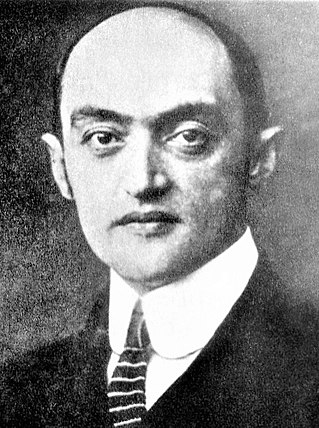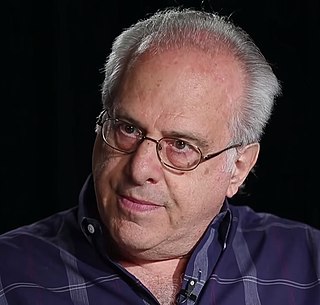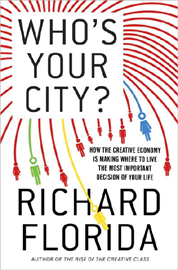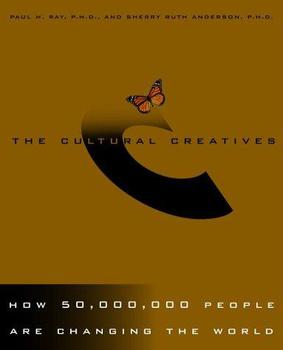
Joseph Alois Schumpeter was an Austrian political economist. He served briefly as Finance Minister of Austria in 1919. In 1932, he emigrated to the United States to become a professor at Harvard University, where he remained until the end of his career, and in 1939 obtained American citizenship.

A gay village, also known as a gayborhood, is a geographical area with generally recognized boundaries that is inhabited or frequented by many lesbian, gay, bisexual, transgender, and queer (LGBT) people. Gay villages often contain a number of gay-oriented establishments, such as gay bars and pubs, nightclubs, bathhouses, restaurants, boutiques, and bookstores.
The German Labour Front was the national labour organisation of the Nazi Party, which replaced the various independent trade unions in Germany during the process of Gleichschaltung or Nazification.

Richard L. Florida is an American urban studies theorist focusing on social and economic theory. He is a professor at the Rotman School of Management at the University of Toronto and a Distinguished Fellow at NYU's School of Professional Studies.
The creative industries refers to a range of economic activities which are concerned with the generation or exploitation of knowledge and information. They may variously also be referred to as the cultural industries or the creative economy, and most recently they have been denominated as the Orange Economy in Latin America and the Caribbean.

George Emanuel Lewis is an American composer, performer, and scholar of experimental music. He has been a member of the Association for the Advancement of Creative Musicians (AACM) since 1971, when he joined the organization at the age of 19. He is renowned for his work as an improvising trombonist and considered a pioneer of computer music, which he began pursuing in the late 1970s; in the 1980s he created Voyager, an improvising software he has used in interactive performances. Lewis's many honors include a MacArthur Fellowship and a Guggenheim Fellowship, and his book A Power Stronger Than Itself: The AACM and American Experimental Music received the American Book Award. Lewis is the Edwin H. Case Professor of American Music, Composition & Historical Musicology at Columbia University.

Walt Disney Imagineering Research & Development, Inc., commonly referred to as Imagineering, is the research and development arm of The Walt Disney Company, responsible for the creation, design, and construction of Disney theme parks and attractions worldwide. The company also operates Disney Live Entertainment and The Muppets Studio and manages Disney's properties, from Walt Disney Studios in Burbank to New Amsterdam Theatre and Times Square Studios Ltd. in New York City. Founded by Walt Disney to oversee the production of Disneyland, it was originally known as Walt Disney, Inc. then WED Enterprises, from the initials meaning "Walter Elias Disney", the company co-founder's full name. Headquartered in Glendale, California, Imagineering is composed of "Imagineers", who are illustrators, architects, engineers, lighting designers, show writers and graphic designers.

Basic Books is a book publisher founded in 1950 and located in New York City, now an imprint of Hachette Book Group. It publishes books in the fields of psychology, philosophy, economics, science, politics, sociology, current affairs, and history.
The creative class is the posit of American urban studies theorist Richard Florida for an ostensible socioeconomic class. Florida, a professor and head of the Martin Prosperity Institute at the Rotman School of Management at the University of Toronto, maintains that the creative class is a key driving force for economic development of post-industrial cities in the United States.

Zachary E. Posen is an American fashion designer.
These are the references for further information regarding the history of the Republican Party in the U.S. since 1854.
Design thinking refers to the set of cognitive, strategic and practical procedures used by designers in the process of designing, and to the body of knowledge that has been developed about how people reason when engaging with design problems.

Richard David Wolff is an American Marxian economist known for his work on economic methodology and class analysis. He is a professor emeritus of economics at the University of Massachusetts Amherst and a visiting professor in the graduate program in international affairs of the New School. Wolff has also taught economics at Yale University, City University of New York, University of Utah, University of Paris I (Sorbonne), and The Brecht Forum in New York City.

The 2002 Florida gubernatorial election took place on November 5, 2002 for the post of Governor of Florida. Incumbent Republican governor Jeb Bush defeated Democratic candidate Bill McBride. Bush became the first Republican governor of Florida to win re-election to a second term. This election was the last time until 2022 a Florida gubernatorial candidate won the general election by double digits or that a Republican won Miami-Dade County. This was the first time in Florida's history that a Republican Governor was re-elected.
Cool Cities Initiative began as an initiative started by Michigan Governor Jennifer Granholm to spur growth and investment in Midwestern cities. The Initiative was proposed in 2003 in response to the brain drain of students attending college in Michigan and then seeking employment out of the state.

Who's Your City?: How the Creative Economy Is Making Where You Live the Most Important Decision of Your Life is a non-fiction book written by Richard Florida. The book advances Florida's previous work on the locational choices of people and businesses. He adds a dimension of environmental psychology by assigning psychological profiles to urban regions according to the dominant personality traits of the people who live there. For example, the New York metropolitan area and the ChiPitts area have the highest concentration in the United States of people whose dominant personality trait is neuroticism. The book ends with a ten step guide to choosing a location best suited to the reader's personality and life situation.

The Cultural Creatives: How 50 Million People Are Changing the World is a nonfiction social sciences and sociology book by sociologist Paul H. Ray and psychologist Sherry Ruth Anderson, The authors introduced the term "Cultural Creatives" to describe a large segment in Western society who since about 1985 have developed beyond the standard paradigm of modernists or progressives versus traditionalists or conservatives. Ray and Anderson claim to have found 50 million adult Americans can now be identified as belonging to this group. They estimated an additional 80–90 million "Cultural Creatives" exist in Europe as of 2000.

Richard King is an American film sound designer and editor who has worked on over 70 films. A native of Tampa, Florida, he graduated from the University of South Florida with a BFA in painting and film. He has won Academy Awards for Best Sound Editing for the films Master and Commander: The Far Side of the World (2003), The Dark Knight (2008), Inception (2010), and Dunkirk (2017). He was also nominated for War of the Worlds (2005), and Interstellar (2014). He has won Bafta awards for Master and Commander: The Far Side of the World (2003), Inception (2010), and Dunkirk (2017) and four MPSE awards for Best Sound Effects Editing & Design, as well as the MPSE Career Achievement Award (2016).
Les Standiford is an author and, since 1985, the Founding Director of the Florida International University Creative Writing Program in Miami, Florida. He also holds the Peter Meinke Chair in Creative Writing at Eckerd College in St. Petersburg, Florida.

Scott Timberg was an American journalist, culture writer, and editor. He was best known as an authority on southern California culture and for his book Culture Crash: The Killing of the Creative Class.













